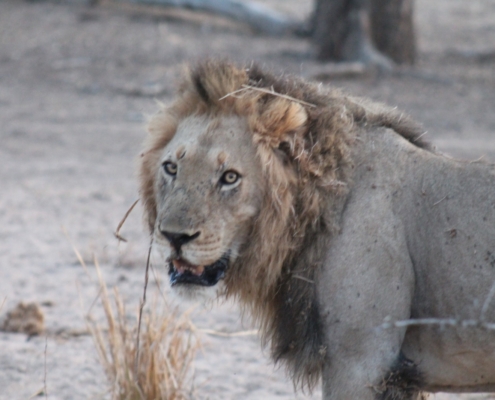Safari Spending Guide
 Planning a safari adventure is thrilling, but one of the key questions that often comes up is how much spending money you’ll need. While the safari itself—breathtaking landscapes, wildlife encounters, and exhilarating game drives—is the highlight, there are also smaller expenses to consider. Whether you’re enjoying meals, shopping for souvenirs, or tipping along the way, knowing what to expect can help you budget more effectively for the trip. Here’s a breakdown of costs and what to keep in mind when planning your safari spending.
Planning a safari adventure is thrilling, but one of the key questions that often comes up is how much spending money you’ll need. While the safari itself—breathtaking landscapes, wildlife encounters, and exhilarating game drives—is the highlight, there are also smaller expenses to consider. Whether you’re enjoying meals, shopping for souvenirs, or tipping along the way, knowing what to expect can help you budget more effectively for the trip. Here’s a breakdown of costs and what to keep in mind when planning your safari spending.
Meals and Dining Costs
Food is a key part of any trip, and on safari, you’ll find plenty of dining options, from casual takeaways to sit-down restaurants. Here’s an overview of what you might pay for meals:
- Restaurant or Takeaway Meals: If you’re dining out, a typical three-course meal can cost around R500 per person. If you’re opting for something more casual, like takeout, you can expect to pay about R80 for a toasted sandwich or salad.
- Single Meal at a Restaurant: For a more straightforward meal at a restaurant, you’ll generally pay around R150 per person. If you’re thirsty, a drink will cost you somewhere between R40 and R60.
- Quick Meal Example: Craving fast food? A meal for two from KFC will usually cost about R350, offering a quick and affordable option.
Drinks
Drinks, whether soft drinks or bottled water, are relatively inexpensive:
- Soft drink: A small cooldrink costs around R15.
- Water: A 350ml bottle of water is about R10.
Souvenirs
One of the best parts of going on safari is bringing home a unique souvenir. Depending on what you choose, souvenirs typically range from R300 to R600. Whether it’s a handcrafted item or a keepsake, you’ll want to budget for a few small purchases during your trip.
Tipping
While tipping isn’t mandatory, it’s a common courtesy and an appreciated gesture for service. Here are some typical tipping guidelines:
- Restaurants: It’s customary to tip around 10% of the total bill at restaurants.
- Other Tipping: For smaller services, like cultural performances or street vendors, a tip of R50, R100, or R200 is appreciated. They’ll be happy with any amount, but a little extra goes a long way.
If you’re in a larger group, having cash on hand for tips is always a good idea. For most people, about R500 for tips during the trip should be more than enough.
Cash vs. Card: How Much Cash to Bring
Although Visa and MasterCard are widely accepted in most places, it’s always a good idea to bring a small amount of cash for certain situations. Here’s how to plan your cash needs:
- Cash: Bringing around R1000 to R2000 in cash should be sufficient for tips, small purchases, or payments at places that don’t accept cards.
- ATMs: If you find that you need more cash during your trip, there are ATMs available to withdraw money. You could take out R1000 at the start and then adjust your cash needs based on how much you’ve spent.
Final Budget: How Much Should You Budget?
Your total spending will depend on your preferences, travel style, and what experiences you want to prioritize.
- If you’re traveling on a budget, R5000 should be more than enough for the trip. This would cover meals, tips, souvenirs, and other small purchases.
- For those looking to splurge, a budget of around R10,000 will allow you to enjoy a more luxurious experience, including higher-end dining and shopping.
Ultimately, the amount you spend is up to you. Some travelers may find R5000 plenty, while others may prefer the flexibility of a larger budget. The important thing is to know what to expect, so you can plan accordingly and enjoy your safari without worrying too much about money.
Visa and MasterCard are accepted in most places, which makes it easier to manage your expenses without needing to carry too much cash. However, having a small stash of cash—between R1000 and R2000—will cover tips and those instances where card payments aren’t accepted, like when buying souvenirs from street vendors or tipping for cultural performances.
With this guide, you’ll have a better sense of what to expect and how much to bring, so you can focus on the unforgettable experiences of your safari. Happy travels!

